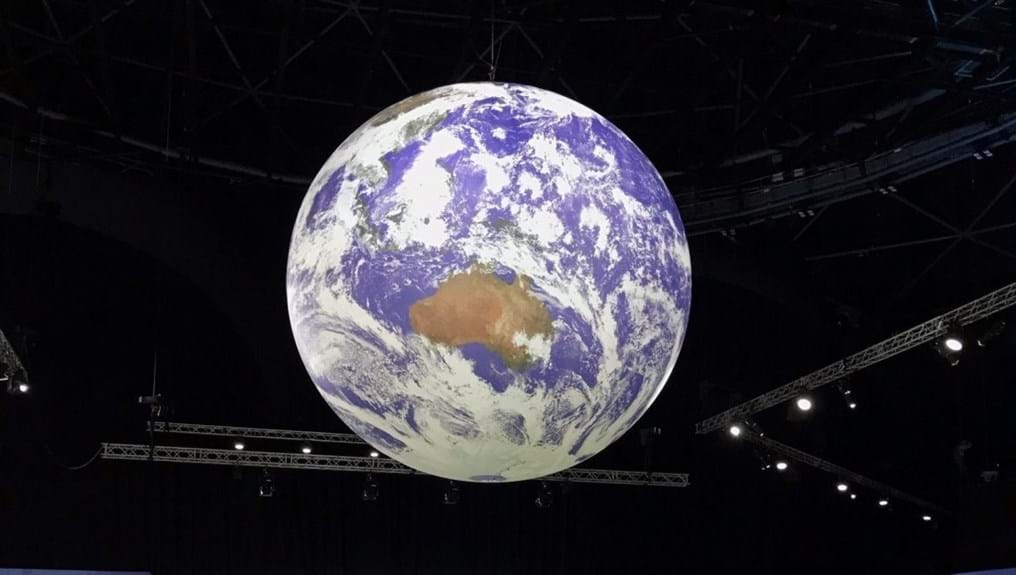Guest blog: Water and climate change #COP26

8th November 2021
In this blog, IChemE Fellow Martin Currie talks about how a systems approach and collaboration beyond the water treatment community has taken the water climate discussion to COP26.

Name: Martin Currie
Job title and organisation: Water Quality & Treatment Consultant, Aqueum and Founder, andeye
IChemE role: Chair of IChemE’s Water Special Interest Group (SIG), member of the Institution’s task group that supported work to produce the IChemE position on climate change.
Bio: Martin is a Chartered Chemical Engineer and Fellow of IChemE with over 20 years’ experience in the water industry. He has held roles in the UK, Dubai and Mauritius, covering projects across the world.
At the start of 2021, the focus of IChemE’s Water Special Interest Group (SIG) shifted almost exclusively to the issue of climate change. Thousands of volunteer-hours were spent determining how best to take action to mitigate and address the impacts of climate change and will culminate in a panel discussion at the closing session of the COP26 Water Pavilion in Glasgow.
Last year, I was part of the task group involved in producing IChemE’s position on climate change.
Ahead of the publication of the IChemE-wide statement, I was also proud to share Water SIG’s desire to lead the way with action, which was the first SIG to produce its own Climate Crisis Position statement, specific to the water sector. We were delighted to join with other IChemE SIGs and member groups to produce an updated Climate Change Action Plan which sits amongst a suite of sector-specific action plans, demonstrating chemical engineers’ commitment to addressing decarbonisation.
In 2021, the Water SIG recognised that we needed to practice the systems approach we were espousing and collaborate beyond the water treatment community. Although chemical engineers have a significant role to play in realising the ambition of the 2015 Paris Agreement, we recognised that the vital action required is to engage with all stakeholders for water sector mitigation and adaptation to climate change. This led us to the Water Climate Discussion, a collaboration with a wide range of other organisations including the International Water Association (IWA), Water Aid, Institute of Water, Water UK, British Water, Future Water Association, Society for the Environment (SocEnv), Royal Society of Biology, the Institution of Civil Engineers (ICE) and Royal Society of Chemistry (RSC).
From May to September 2021, we organised a series of water climate discussion events on adaptation and resilience, nature-based solutions, the energy transition, clean transport and finance. These were followed by a highly interactive virtual conference held over three weeks in October. It was inspiring to discuss issues that impact the future of life on earth with such a broad range of participants. I am very grateful to our collaborators and the other organisations who contributed to this.
As our water climate discussions developed, we had dialogue with United Nations Framework Convention on Climate Change (UNFCCC) High Level Champions, who welcomed the activity we have initiated. Now we have the opportunity to open up the discussion at the first ever Water Pavilion at a UNFCCC COP event.
Throughout the discussions it was important to me and other members of the collaborative steering group, to break down barriers and consider the issues and solutions holistically. Our interactive discussions were able to identify a hierarchy of water climate issues and solutions. This week, we set up automatic translation of this growing hierarchy, and we would welcome contributions from people who could help us improve our translations into other languages. We also welcome contributions on any further water climate issues and solutions.
The conversations have identified clear issues and a call for action was published ahead of COP26. It has been an opportunity to reflect on what we can do as individuals; personally and professionally. I was inspired and proud that the discussions we’ve held have led to personal pledges from professionals in the water sector. These demonstrate the breadth and impact that professionals, including chemical engineers, in the water sector can have.
As I write this blog, we don’t know what all the outcomes of COP26 will be, but I am positive that the people who have participated in our events so far will continue to play their part in driving positive action. There have been numerous other activities at the Water Pavilion at COP26 this week, and even if you can’t get to Glasgow, I do hope you can register and join us live for the concluding event at 1800 GMT on Friday 12 November – your input to COP26 will be valued.
COP26 is not the end of the water climate discussion. You are also welcome to join the group’s next discussion at 0900 GMT on Tuesday 2 December where we will determine our next steps.
Regardless of this, I fully intend to use my skills as a chemical engineer to make a contribution to a more sustainable future for the water sector and our planet.
For more information on IChemE’s COP26 activities, please visit www.icheme.org/cop26 or follow #ChemEngAtCOP26 on social media.